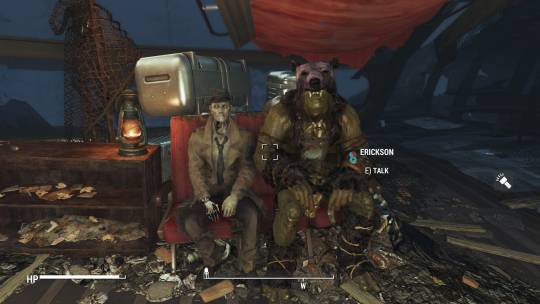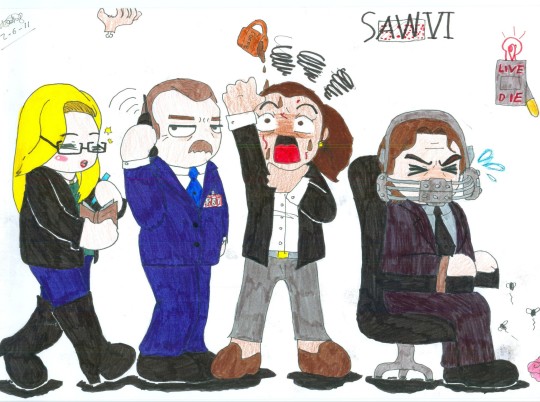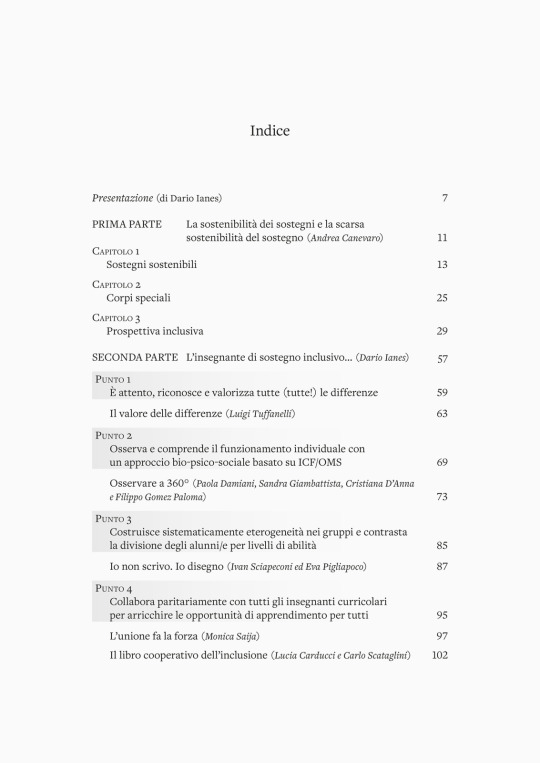#Erickson
Text

◆Nice hat◆
bonus under the cut

i just had to include him
#fallout art#fallout erickson#far harbor#erickson#fallout 4#fnv#vulpes inculta#fallout new vegas#i dont want to tag Galmar here😭#also sorry i have no idea how to draw backgrounds right 🥲
505 notes
·
View notes
Text


Erickson, the friendly supermutant from Fallout 4's Far Harbor. With and without hat.
300 notes
·
View notes
Text

Construction worker Erickson
107 notes
·
View notes
Text
Kaktuszok
Egy ericksoni történet:
"Az alkoholista pácienseket általában elküldöm az AA-ba, mert ők jobban csinálják, mint én. A múltkor eljött hozzám egy, és azt mondta: „A nagyszüleim mindkét ágon alkoholisták voltak; a szüleim alkoholisták voltak; a feleségem szülei is alkoholisták; a feleségem is alkoholista. Nekem pedig már tizenegyszer volt delíriumom, mert alkoholbeteg vagyok. A testvérem szintén alkoholista. Ez tehát az ön számára egy pokoli munkának ígérkezik. Mit gondol, tud tenni valamit?"
Megkérdeztem, mi volt a foglalkozása. „Amikor józan vagyok, egy újságnál dolgozom. Az alkohol nálunk foglalkozási ártalom." Azt mondtam, „Rendben van, azt akarja, hogy tegyek valamit — ezzel az előtörténettel. Nos, az, amit most szándékozom javasolni önnek, nem fog úgy tűnni, mint ami a leghelyesebb ilyenkor. Menjen ki a Botanikuskertbe. Vizsgálja meg az ott levő kaktuszokat, és csodálkozzon el azon, hogy ezek a kaktuszok három éven át is életben maradhatnak eső nélkül. És ezen jó sokáig gondolkozzon."
Sok évvel később eljött hozzám egy fiatal nő: „Dr. Erickson, ön ismert engem még három éves koromban. Akkor elköltöztünk Kaliforniába. Most Phoenixben vagyok és eljöttem megnézni, milyen ember ön, hogyan néz ki."
Azt feleltem neki, „Hát akkor jól nézzen meg, de azért kíváncsi lennék, miért akar megnézni."
„Egy ember, aki egy alkoholistát elküld a Botanikuskertbe, hogy nézzen körül ott, megtudni, hogyan lehet meglenni alkohol nélkül, és hogy ez még működik is, ezt az embert látnom kell. A szüleim azóta józanok, amióta ön elküldte oda az apámat."
„Mit csinál most az apja'?"
„Egy magazinnál dolgozik. Az akkori újságot otthagyta. Azt mondja, az újságírók között az alkoholizmus foglalkozási ártalom."
Hát, ez egy kellemes módja az alkoholizmus kikúrálásának. Rá kell vezetni, hogy tisztelje a kaktuszokat, amik három évig is elvannak eső nélkül. Ezt akármeddig keresheted a tankönyvekben, és átnézhetsz akármennyit. Abban csak azt találod, hogy tedd ezt meg ezt. De amit voltaképpen tenned kell, hogy próbálod kitalálni, milyen alak is ez a te páciensed, aztán úgy foglalkozol vele, ami illeszkedik a problémájához, az ő teljesen személyes, egyedi problémájához.
Ez a történet gyönyörű példája a jelképesen alkalmazott indirekt szuggesztiónak."
E L Rossi, S Rosen - Milton H Erickson élete és tanító történetei
Azt mondják, hogy százával voltak neki ilyen történetei.
21 notes
·
View notes
Text
Erickson was a Creep
I had not planned to write this blog post or milkshake duck a popular hypnosis hero, but I went down one rabbit hole too many and something snapped into focus.
Milton Erickson was a creep.
There's no way to sugarcoat this. If he was practicing today, he would almost certainly be reported for his practices. Even for his time, he was thought of as creepy.
Richard Bandler notes in Trance-formations that Satir thought Erickson was creepy.
Virginia [Satir] had met Milton and thought he was creepy and didn’t want anything to do with him.
But we don't need to rely on Satir's personal opinion of him. We can cite sources.
Hilgard thought the same thing, although he is more indirect about it. From Milton Erickson as Playwright and Director / scihub link, Hilgard starts us off with a case where husband and wife pees the bed, and his solution is to have them deliberately wet the bed every night for two weeks.
You have your instructions. There is to be no discussion and no debating between you about this, just silence. There is to be only obedience, and you know and will know what to do. 1 will see you again in five weeks’ time. You will then give me a full and amazing account. Goodbye! [Volume IV, 1954, p. 100, emphasis in original].
It gets worse.
We have this example of what Erickson would do when his patient was sexually attractive, emphasis added in places.
One such pair of cases is provided by two disheveled girls with poor self-images, who were treated at different times. These patients differed in that one of them, although slightly overweight, he saw as sexually attractive, even in her present physical condition. The other, extremely overweight, could not appeal to him as sexually attractive, and these differences between the two influenced his choice of scenario. The first, the basically more attractive one, he prepared for the fact that he would shock her, but it would be helpful, dramatically so. “I will outline a course of behavior for you, and this you are to execute without fail. Do you give me your absolute promise [Volume IV, 1930s, p. 485]?” He then referred to her pubic hair as the pretty patch of fur between her legs, and requested that she look at herself in the nude that night before the mirror, examining herself particularly from the waist down and to be pleased by what she saw. “Try to realize how much you would like to have the right man caress your pretty pubic hair and your soft rounded belly” [Volume IV, 1930s, p. 486]
The next night she was to examine the upper part of her body, admiring particularly her breasts. In each case she blushed profusely at the suggestions, but was then given amnesia for them, and carried them out, with additions of her own which she was not asked to describe.
In the next session, Erickson, after having built her up, attacked her severely for her appearance, her lack of cleanliness, her unkempt hair, and the stains on the dress she had worn each time she came to see him.
When the patient is unattractive, there is no attempt to get her to caress her pubic hair and carry out unnamed additions in front of a mirror, and deal with resistance by giving her amnesia. It's right on to the abuse.
The second patient, the overweight one, he approached immediately with a severe and brutal tongue lashing about her homeliness and fatness and unkempt appearance. Note that in the first case this attack was delayed until some self-confidence had been restored. He was confident that in the second case, the only way she would know that he would be honest with her was to speak out harshly and aggressively. After listening to this onslaught, she agreed to go on in therapy. The behavioral practices assigned to her were numerous library assignments. One had to do with searching out anthropology books to find out how all kinds of misshapen women were able to find someone to think them attractive and marry them. Other assignments opened her eyes to practices in orthodontia, plastic surgery, cosmetology, and hair dressing.
The treatment of these two patients with somewhat similar symptoms had in common only the shock of brutal assessment of their deficiencies, delivered at different stages of treatment, and the referral to store clerks to improve the manner in which they dressed.
Hilgard stops here, but the implication is clear: if Erickson thought a female patient was sexually attractive, his approach would include sexual elements.
This is further borne out by My Voice Will Go With You. Let's start by picking out Erickson's intervention with a "sexually numb" woman. It turns out that all she needed was for Erickson to describe a penis, and this is enough to give the woman her first orgasm.
A woman had secured a divorce because she went all numb sexually and this had troubled her husband very much. He couldn't stand living with an unresponsive woman. Then she had a number of boyfriends. She was now living with a man who was separated from his wife—a terribly sordid life. He wanted to have her as his mistress. He placed his children first, his wife second, his mistress third. And she didn't have any response at all. The man was a wealthy man. He gave the woman a lot of things she liked. And she said, "I'm just plain cold. I have no feelings. It's a mechanical thing For me." In a trance, I explained to her about how boys learn to recognize different feelings in their penis—when it's limp, a quarter erect, halfway erect, fully erect. How it feels when detumescence occurs. How it feels when the ejaculation occurs. And I explained to her all about wet dreams in boys. I said, "In every boy half of his ancestors are feminine. And what any boy can do, any girl can do. And so you can have a wet dream at night. In fact, you can have a wet dream any time you wish. In the daytime you may see a handsome man. Why not have one then? He doesn't need to know about it. But you can know about it." She said, "That's an intriguing thought." I noticed that she became abnormally still. Her face flushed. She said, "Dr. Erickson, you've just given me my first orgasm. Thank you very much."
There's another case that starts with a girl farting in the classroom. Erickson shows her his anatomy book, shows a cross-section of the rectum, and tells her to eat beans and start farting.
Then I told her, "Now, I want you to demonstrate earnest, honest respect for God. I want you to bake some beans. They are called whistleberries by the navy. Flavor them with onions and garlic. And get in the nude and prance and dance around your apartment, emitting loud ones, soft ones, big ones, little ones ... and enjoy God's work."
A year later, she's married and gets her breast to nurse her child in front of him. Success!
And she did that. A year later she was married and I made a house call to check up on her. She had a baby. And while I was visiting her, she said, "It's time to nurse the baby." She opened her blouse, exposing her breast, and fed the baby and chatted casually with me, A complete change of reference.
It gets worse.
A twelve old girl phones up Erickson and says "I had infantile paralysis and I have forgotten how to move my arms. Can you hypnotize me and teach me?" I want to know how she picked up the phone and called Erickson with her arms not working, but let's take this at face value, and assume this happened just like Erickson said. What does Erickson do? Have her strip to the waist in front of her mother.
I told her mother to bring her over and her mother brought her over. I looked at the girl. For a twelve-year-old girl she had a very well developed bust, except that the right breast was under her arm, I had the mother strip the girl to her waist and I looked over her entire torso to see what the muscles were.
Then he had the girl make faces repeatedly. No, really.
Now, when you start one muscle moving there's a tendency for that to spread to other muscles. You try to move just one finger. You start to spread the movement, unintentionally. Her arms began to move. Now, the right breast migrated from under her arm to one side of her chest. She is now a lawyer, practicing law.
So, the cause was that she had a breast under her arm. and it caused her arms to stop working. She needed Erickson to explain this. And the solution was to make faces. Can you imagine someone doing this in 2024?
He also asks his wife to check out his daughter's breasts.
In watching my daughters I discovered that happened somewhere around ten years of age. When, for example, Betty Alice was about ten years old and had to pick something off the bookcase or radio, she lifted her arm this way (as if to avoid a large breast). I told Mrs. Erickson, "When Betty Alice takes her bath have a look at her breasts." Mrs. Erickson came out and said, "There's just the beginning of a change in her nipples."
By all accounts, Erickson was driven by a deep-seated need to control, to the point that it damaged his relationship with his daughter. In Cardeña's review of Wizard of the Desert, he describes a section of the DVD.
One of Erickson’s daughters (and executive producer of the documentary) relates with sadness that growing up she could not have just a normal conversation with either her mother, who hyperintellectualized everything, or her father who, although not fully stated, seems to have been in therapist/teacher mode 24/7. Erickson is also described as punishing and sadistic in the demands he imposed on some of his clients, and it is evident that he blurred the boundaries between personal and professional life that therapists are expected to maintain.
Cardeña also says that maybe, just maybe, we should consider that a man who was known to lie to people for therapeutic goals might possibly be lying to his colleagues and students.
To muddy the waters even more, why have not some of the followers of a therapist known to fabricate false past stories to achieve therapeutic goals wondered whether he used that same technique in his writing and teaching?
There's more than this than just the personal creepiness, of course. Erickson's definition of a cure was essentially to conform into society, and you can see that in his definitions of success. Became a lawyer. Got married. The success and meaning is external. Bandler refers to it.
In many ways Milton was one of the most directive hypnotists you would ever want to meet. He only had five goals for people to get well: get out of the hospital, get a job, get married, have children, and send him presents. That was his definition of a cure.
And Erickson was not shy about taking credit for things that he should not have taken credit for. Going back to Hilgard, he describes the case of a WWII vet who Erickson touts as a success.
Harold was a veteran of World War 11 who entered treatment at the age of 23 with a poor background and a bad image of himself as a moron. He changed during treatment from a miserable unskilled laborer through a series of transformations, all the while convinced by Erickson that he was succeeding despite the fact that he was feebleminded. So powerful was Erickson’s strategic control through distorting his self-perception by way of hypnotic amnesia, distractions, redirection of attention, and confusion, that after learning shorthand and typing, serving as a private secretary for 18 months, and making A-grades in college, only then was he given permission to discover that he only thought he was feebleminded.
Erickson's priority was in getting this man fitted into society, and then dealing with his mental issues. And Erickson took credit despite the many, many people helping this man.
As I have noted earlier, despite his strongly authoritarian position as playwright and director, Erickson typically set the stage and the strategy, but left the tactics up to the patient. What is not so evident is the role of many others in producing the therapeutic successes: Joe, who enhanced Harold’s use of the library beyond the reading of children’s books; the married couple who befriended him at the trailer court; the friend who taught him to drive a truck; the transcriber and annotator of rare manuscripts with whom he lived and talked for a year and a half; his teachers (shorthand and typing, piano, guitar [?]), and his college teachers-all of whom are missing from the case study except for the briefest of mention of the piano teacher because she was a woman. [...]
Hilgard goes on to say that Erickson may have had a very direct warping presence on his patient through his control.
Harold’s life away from Erickson may have been very different from the way he appeared in Erickson’s presence. We do not know how fond he became of his teachers or they of him. Although he occasionally asked about Harold’s daily activities in detail, Erickson appears to have been more interested in his own cleverness than in finding out how Harold was perceived in the context of his daily life.
Hilgard says Erickson was essentially given carte blanche to behave however he wanted.
His hypnotic authority allowed Erickson to play the theatrical game of distortion and deception - insisting on Harold’s prolonged compliance with the belief that he was feebleminded. I cannot image any nonhypnotist attempting this, or, for that matter, any other hypnotist. This insistence appears to be specifically Ericksonian, fitting his love of dramatic strategies.
And Hilgard specifically calls out Erickson as doing this for his own personal gratification.
Was Erickson perhaps in some manner overcompensating for his physical weakness by enjoying the power that he achieved over his patients, and gaining vicarious satisfaction over the encounters he assigned them in the real world, some in areas denied to him?
And potentially not only misleading or misdirecting his peers, but also himself.
Had Erickson’s own dramatic way of planning and promoting his own cases led him to some self-deception in the cases as reported? He was unusually good at rationalizing whatever he happened to do, and occasionally appeared to justify failures by converting them into planned successes, as in the case of Harold’s failure in algebra.
The fact that so many of his stories include salacious and unnecessary details is an indication of what Erickson wanted from his patients: unquestioning obedience, humiliating and degrading instructions, gratuitous exposure of women's bodies, and all of it putatively for the patient's benefit.
Even at the time, people knew Erickson's behavior was creepy. As Hilgard notes, if Erickson did not have the stature and the myth associated with him that he had, he would have been treated very differently. His privilege and power protected him from consequence and enabled his behavior to go unchecked.
It is very doubtful that Erickson would have been able to do this in modern day times. He would have been reported, his instructions and conduct recorded. If a disciplinary board didn't deal with him first, he would be showing up on Youtube as a comedian's punch-line.
But the next time you think "What would Erickson do?"
Maybe don't do that.
18 notes
·
View notes
Text
Here's my list of 'Top 5 Characters Evan(me) wishes he could romance within the entire Fallout game series'
⁀↘‿↗⁀↘‿↗⁀↘‿↗⁀↘‿↗⁀↘‿↗⁀↘‿↗⁀↘‿↗⁀↘‿↗⁀
5. Nick Valentine

-I like robocop.
-He's one of those characters I talk about constantly to my parents.
-I loved building a friendship with him.
-Idk what else to say but uh... He's a dreamboat???
4. Erickson

-I didn't know how to feel about him at first, but then I was like 🥺
-He's respectful, he takes care of dogs, and he offers me food + a bed to sleep in.
-I've spent over 4,000 caps on buying dogs from him(my favorite being Gracie)
-To be honest, I'd kill to just be bffs with him.
3. Sergeant Arch Dornan

-Bro makes me giggle.
-Would've killed someone to have him as a companion.
-I'm the mo-ron he's talking about.
-I think I'd end up breaking down if he yelled at me.
2. Lieutenant (Lou?)

-He's so elegant like--
-I am not ashamed to say that I'd pick him over Valentine any day.
-Love how he calls me dear human lmao (in the game y'know)
-I do not like how he'd want to turn me into a super mutant tho.
1. ✨Harold&Bob(all games)✨

-God I love him so much.
-He's an extremely lovable character.
-He goes from homeless guy, to cranky peepaw branch, and then all the way to big depressed tree(+he's in the bos game, but I'm if-y on it)
-I really wish he was a fallout companion because then I could read to him and show him my collection of random things.
-Also I love taking care of plants so expect this guy to have the best plant care known to man.
⁀↘‿↗⁀↘‿↗⁀↘‿↗⁀↘‿↗⁀↘‿↗⁀↘‿↗⁀↘‿↗⁀↘‿↗⁀
#Also honorable mention: Set the ghoul king(?)- Im so down bad for that guy and i love how grumpy he is-#-+that voice??? *faints*#fo4#fallout 4#nick valentine#erickson#erickson the super mutant#fo3#fallout 3#harold#fo3 harold#fo2#fallout 2#fo2 harold#sergeant arch dornan#sergeant dornan#fo2 sergeant dornan#fo1#fallout 1#fallout#fo1 harold#fo1 lieutenant#lieutenant#im a certified harold fan#maggot talks
43 notes
·
View notes
Text

Saw VI people, the last Saw drawing from 2011. Saving Jill for the Next one ಠ‿ಠ
#saw fanart#saw#saw franchise#saw VI#mark hoffman saw#mark hoffman#pamela#erickson#perez#reverse bear trap
14 notes
·
View notes
Text
Hoffman: Conflict and war is the crucible through which we evolve.
Hoffman: (eats Erickson's leftovers and puts the empty container in Strahm's room)
#agent erickson#agent dan erickson#detective dan erickson#erickson#dan erickson#detective hoffman#mark hoffman#detective mark hoffman#hoffman#agent peter strahm#peter strahm#agent strahm#strahm#saw#saw films#saw franchise#saw memes#saw movies#saw incorrect quotes
75 notes
·
View notes
Text
An update on mystery man! They were finally able to zoom the camera in to see his tags. He has been identified as black/green PH, hatched 2009 in Muskegon, MI. His actual name is….Eckert! (Yay not confusing at all hahahaaaaa).
He was the male falcon at the Eckert nest from 2012-2016 and raised over 22 eggs during his time there. Cool to see he’s still in the area.
His current mate is Millie, who recently visited the Eckert nest. Maybe he was talking up that nest and she had to go see it for herself 😉


3 notes
·
View notes
Photo



Un altro sostegno è possibile. Pratiche di evoluzione sostenibile ed efficace, Edited by Andrea Canevaro and Dario Ianes, «Saggi professionali», Erickson, Trento, 2019
#graphic design#pedagogy#education#book#cover#book cover#andrea canevaro#dario ianes#saggi professionali#erickson#2010s
12 notes
·
View notes
Photo

Got this photo of Tanker 104 resting between sorties at the Redmond Air Tanker Base (RDM) in Oregon this past week while one of the US Forestry Service's Shorts 330 heads out with a load of smoke jumpers for a fire south of the Redmond/Bend area. The Erickson Aero Tanker MD-87s were working a fire near Lake Billy Chinook on the perimeter of the reservation of the Confederated Tribes of Warm Springs. The Warm Springs tribes are one of the Columbia Plateau tribes of the Inland Northwest I work with on my day job and that's what had me in Central Oregon the past 2 weeks. That's beautiful area where the MD-87s were working the fire this particular day. Like the day prior, it was very hazy due to the wildfires. I had gone hiking earlier in the day up in the Cascades before things got really hot and hazy. There were also some SEATs (Single Engine Air Tankers) staging out of RDM as well. #Avgeek #aviation #aircraft #planeporn #RDM #Redmond #USFS #airport #planespotting #McDonnellDouglas #MD87#N294EA #Tanker104 #Erickson #EricksonAeroTanker #Shorts #Shorts330 #smokejumper #N145Z #instagramaviation #splendid_transport #aviationlovers #aviationphotography #flight #AvGeeksAero #AvgeekSchoolofKnowledge #AvGeekNation #TeamAvGeek (at RDMRedmondAirport) https://www.instagram.com/p/Cg54Vvlsrtd/?igshid=NGJjMDIxMWI=
#avgeek#aviation#aircraft#planeporn#rdm#redmond#usfs#airport#planespotting#mcdonnelldouglas#md87#n294ea#tanker104#erickson#ericksonaerotanker#shorts#shorts330#smokejumper#n145z#instagramaviation#splendid_transport#aviationlovers#aviationphotography#flight#avgeeksaero#avgeekschoolofknowledge#avgeeknation#teamavgeek
14 notes
·
View notes
Text
NIDS
National Identity Deficiency Syndrome
The official civic malady of Columbus
-- Erickson
0 notes
Link
What work needs to be done in the office? Justin and Lance are joined by Robin Erickson, VP of Human Capital at the Conference Board, to discuss the disconnect between workers and employers and what employers can do to attract and retain workers.
tags: tsou, justin weller, lance jackson, robin erickson, economy, jobs, career, salary, work, office, pandemic, money, time, flexibility, home, family, labor, market
#career#economy#erickson#family#flexibility#home#jackson#jobs#justin#labor#lance#money#office#pandemic#robin#salary#time#tsou#weller#work
0 notes
Photo

Exterior Concrete in Vancouver
Inspiration for a modern gray three-story concrete exterior home remodel
0 notes
Text
Miből vannak az illúziók?
Egy hatodikos matekfelvételi jött szembe. Nincs vele gond, egyszerűnek szánt egyszerű feladvány, de van benne mégis egy érdekes csavar. Amiről aztán mindenféle dolgok eszembe jutottak, ezek következnek.
Szeretném rábeszélni az olvasót, oldja meg legalább az a-b kérdéseket. Egyszerűcskék, két perc az egész, cserébe lesz sajátélménye arról, amiről írni fogok. Az most itt fontos lenne.

(6. feladat)
.
.
.
A b feladatrész az érdekes. Előtte, az a feladat ugráltatott minket balra-jobbra, balra-jobbra, balra-jobbra. Így, esélyesen a b résznek is úgy kezdünk neki, hogy elmegyünk balra egyet, és aztán ... rájövünk, hogy nem tudunk páros számmal elérni jobbra a kívánt mezőbe. Más számkombinációval sem, sőt ha jobbra ugrunk párosat, visszaugrással sem megy.
A hatodikosoknak itt megáll kicsit a tudományuk. A fiú, akivel csináltam, egy idő után rájött, hogy hiába ugrál balra-jobbra, sehogy sem fogja tudni elérni a 12-t. Akkor ezt nem lehet megoldani, ugye? - nézett rám.
De, meg lehet, mondtam neki. Azért nem megy, mert ragaszkodsz egy olyan szabályhoz, ami valójában nincs is. Úgy vesszük, mintha elő lenne írva, hogy egyet erre és egyet arra is kell lépnünk. És úgy nem is lehet megoldani. De sehol nincs előírva, hogy mindkét irányba is kell lépni. Vagy hogy muszáj különböző számokat használni. Miért ragaszkodunk egy olyan szabályhoz, amit senki nem írt elő?
[Először kiderül, hogy úgy nem megy. Na de akkó' mi!? A felnőtt ilyenkor rutinosan körülnéz (legalábbis a hatodikos matekpéldában körülnéz), van-e más lehetőség. Szemügyre vesszük a keretrendszert, a szabályokat, amik szerint dolgozunk. Ki rakta ide ezeket a kereteket és miért? Kellenek ezek tényleg? Hopp, meg is van, miért is ne lépjünk kétszer jobbra?]
Hát ez az az aha-élmény, amit át lehet élni kicsiben ezzel a feladatocskával.
És mi lehetséges még?
Ebben az az érdekes - szerintem -, hogy kábé az összes emberi konfliktusunk és nyűgünk-az-életben ilyen. Szabályok és feltételek mentén igyekszünk megoldani őket. Életünk során tucat- és százszámra szedtük össze azokat az áthatolhatatlan felállásokat és falakat, amik úgy nem oldhatók meg. A baj az, hogy magát a keretrendszert, amit frissíteni és szétszálazni kéne, nem tudjuk felismerni. Mint a hal sem a vizet.
Mostanában Milton Ericksont olvasok. Merő véletlen, hogy pont ezzel a matekpéldával szinkronban jönnek elő benne ilyenek:
"Úgy látjuk, hogy az a tudatosság, ami a modern racionalista ember tipikus hozzáállásaiban és hiedelmeiben megnyilvánul, fájdalmasan kevés. Becslés szerint az átlagember a legjobb esetben is a mentális teljesítményének legfeljebb egytizedét hasznosítja. A legtöbbünk egyszerűen nem is ismeri, hogyan tehetné hatékonyabbá saját magát. A nevelési rendszerünk azt tanítja meg, hogyan mérhetjük fel a tudás bizonyos külső kritériumait. Így megtanuljuk az ábécét, az olvasást, írást, és hasonló készségeket. Tudásunk tartalmát szabvány teljesítménytesztekkel mérik, annak a mértékét viszont nem, hogyan hasznosítjuk idegpályáinkat a céljaink elérése érdekében. Az oktatásban még egyáltalán nincsenek eszközök arra, hogyan lehetne kiképezni vagy felkészíteni az egyént arra, hogy megfelelően kiaknázza a saját karaktermintázatát és asszociatív folyamatait — pedig ez a belső képesség a kreativitás és a személyiségfejlődés lényege. A tudatos gondolkodás ennélfogva úgy van programozva, hogy a teljesítmény külső, konszenzusos szabványainak feleljen meg, és minden, ami egyedi a személyben, feltáratlan marad. Vagyis az egyéniségünk legnagyobb része tudattalan és ismeretlen. Erickson mondása: „Az embereknek nagyon fontos tudniuk, hogy a tudattalanjuk okosabb, mint ők maguk. A tudattalanban tárolt anyag gazdagsága rendkívüli." A pácienseknek azért vannak problémáik, mert a tudatos programozásuk túl szigorúan korlátozza belső kapacitásaikat. A megoldás az, hogy segíteni kell nekik ezeknek a tudatos attitűdöknek az áttörésében, amivel felszabadíthatók tudattalan lehetőségeik a feladatmegoldásra."
M Erickson, E L Rossi, S I Rossi - A hipnózis valósága
Ez egy 1976-os írás, és a mi ötven évvel későbbi felvilágosult elménk persze felhördül az agyunk csupán 10%-át használjuk szövegen, mint rég túlhaladotton. De a szerző nem is agyat ír, hanem mentális teljesítményt (illetve idegpályákat) - nem ugyanaz.
De fölösleges szavakon rugózni - Erickson és a környezetében élők mindezt képesek voltak élőben is bemutatni.
"Pearson téglája
Bob Pearson pszichiáterként dolgozott Michiganben. Ő volt az egyetlen hatvan mérföldön belül. A legközelebbi kórház is hatvan mérföldre volt tőle. Egy nyáron elküldte a családját rokonlátogatásra, és felfogadott egy építési vállalkozót, hogy ez idő alatt tegyék rendbe a háromszintes ház kéményeit. A bontást végző munkások nem tudták, hogy otthon van, és amikor kissé gondatlanul kisétált a ház elé, egy ledobott tégla úgy homlokon találta, hogy eltört a koponyája.
Bob összeesett, de gyorsan magához tért. Áttekintette a helyzetet: „Mivel Erickson nincs itt, hanem Arizonában, magamnak kell megoldanom a helyzetet". És gyorsan produkált saját magán egy lokálanesztéziát, azután beült az autóba, levezetett hatvan mérföldet a kórházig. Ott megcsinálták a szokásos vizsgálatokat. Amikor megérkezett az idegsebész, mondta neki, hogy a műtét alatt nincs szüksége aneszteziológusra, aki viszont udvariasan ragaszkodott hozzá. Erre Bob megkérte az altatóorvost, írjon fel szó szerint mindent, amit az altatás alatt mondanak.
A műtét után Bob azonnal visszanyerte az öntudatát, és egészen pontosan visszamondta a kollégáknak, miről tárgyaltak az operáció folyamán. Mindenre jól emlékezett, még arra is, amikor az operatőr hangosan gondolkodott azon, be kell-e ültetni a koponyacsontba egy ezüstlemezt, vagy sem. Majd azt mondta neki: ,Következő szerdán [a baleset és a műtét csütörtökön volt] San Franciscóban kell lennem, mert előadást tartok az éves kongresszuson." A sebész elhűlt. ,Nézze, szerencsés lesz, ha egy hónapon belül el tudja hagyni a kórházat."
„Szeretném, ha megértené. Kedden vizsgáljon meg engem, minden szükséges műszerrel. Ha nem talál lényeges eltérést, elutazom San Franciscóba. Ha talál valamit, itt maradok a kórházban." Mint Bob később elmesélte, az idegsebész szinte vért izzadt a vizsgálat során és csak nagyon vonakodva bocsátotta el. San Franciscóban találkoztam vele. Egy nagy kötést viselt a homlokán. Félrehúzta a kötést, és megkérdezte: „Na, ehhez mit szólsz?" Egy hajszálnyi sebvonalat láttam: „Mi az, megkarmoltak?" „Koponyatörésem volt", és elmondta az egész történetet.
Ez a történet, hasonlóan Ericksonnak az apja szívrohamairól szóló emlékeihez, a szellem hatalmát mutatja a test felett, komoly traumák esetében. Pearson gondolata: „magamnak kell megoldanom a helyzetet". Számtalan, akár nagy veszélyt rejtő esetekben is, nekünk magunknak kell megtalálnunk azokat a belső erőforrásokat, melyek birtoklásáról mindaddig nem is volt tudomásunk. A történet azt is demonstrálja, hogy általában többet tudunk arról, mi történik, mint amit engedünk tudni magunknak."
E L Rossi, S Rosen - Milton H Erickson élete és tanító történetei
Ha valaki húzná a száját, minek megint ez a misztika:
"Erickson elutasította az ún. természetfeletti és extraszenzoros érzékelést; Houdinihez, a nagy bűvészhez hasonlóan ezeket illúzión, trükkön vagy rendkívül fejlett megfigyelő készségen alapulónak tartotta. Hozzáállását jól összefoglalja egy 1979-ben kelt levele szerzőtársához, Ernest F. Peccihez: „Úgy vélem, tájékoztatnom kellene téged arról, hogy én nem hiszek a parapszichológia tudományos megalapozottságában, és szerintem ezek az ún. bizonyítékok hamis logikán, az adatok elfogult félreértelmezésén, és gyakran nyílt csaláson alapulnak. Ötven éve dolgozom azon, hogy a hipnózist elválasszam a misztikus és tudománytalan konnotációktól."
(Mondjuk szerintem pont azt csinálta vastagon, magát az áramló energiát (is) érzékelte, mindegy. Részben ezért is pislogott csak mindenki, miket csinál. Van ebben a könyvben egy érdekes részlet arról is, miket műveltek Aldous Huxleyvel.)
Erickson amúgy színvakon született (a bíbort érzékelte egyedül), illetve nem volt képes a hangszíneket megkülönböztetni. Az iskolában nem értette, miért gyűlnek össze "énekkarba" az emberek közösen ordibálni.
"17 évesen csaknem végzetes polio-enkefalomielitiszt (járványos eredetű agy-gerincvelőgyulladást) kapott.
Addig úgy gondolta, maga is gazdálkodni fog, akárcsak az apja. A két fő kisgyermekkori hátrányából a színvaksággal nincs mit kezdeni, viszont a diszlexiáját nagyon tudatos munkával legyőzte. Már gyermekként is voltak érdekes autohipnotikus tapasztalatai, ahogyan ő nevezte, „fényvillanások" és "kreatív pillanatok". Ám amikor gyermekbénulásban megbetegedett; az állapota olyan súlyos volt, hogy az orvosok lemondtak róla. A kritikus éjszakán szintén volt egy megrendítő „autohipnotikus" élménye:
Erickson: Ahogyan ott, azon az éjszakán feküdtem az ágyban, meghallottam, hogy a másik szobában a három orvos - a háziorvosunk, meg két specialista New Yorkból - valamelyike tanácskozás közben azt mondja a szüleimnek: „Ez a fiú nem éri meg a reggelt." Élénk haragot éreztem: hogyan lehet így közölni egy anyával, hogy a fia reggelre meghal. Az anyám bejött hozzám, olyan bizakodó ábrázattal, amire csak képes volt egy ilyen közlés után. Arra kértem, fordítsa el a tálalószekrényt, állítsa szögben az ágyam végéhez. Nem értette, mit akarok, talán delirálok, gondolhatta. Alig tudtam beszélni - de ahogyan ferdén ráláttam a tálaló tükrére, kiláthattam a szoba nyugatra néző ablakán. Átkozott legyek, ha meghalnék még egy naplemente látása nélkül. Ha lenne rajztehetségem, mindig naplementét rajzolnék.
Rossi: A haragod és a vágy még egy napnyugtára átsegített azon a kritikus napon. De miért nevezed ezt autohipnotikus tapasztalatnak?
E: Láttam a hihetetlenül gyönyörű napnyugtát, az egész eget. Ám az a helyzet, hogy az ablak előtt egy fa volt, ami eltakarta a kilátást. És én azt kitakartam.
R: Kitakartad? Tehát azt mondod, szelektíven észleltél, mint egy módosult tudatállapotban?
E: Igen, ezt tettem, nem tudatosan. Láttam az egész napnyugtát, de nem láttam a közbeeső fát, sem a kerítést, meg a nagy sziklát sem, amik mind ott voltak közben. Kitakartam mindent, a napnyugtát kivéve. Miután láttam a napnyugtát, három napra elvesztettem az eszméletemet. Amikor végül felébredtem, kérdeztem az apámat, miért takarították el a fát, meg a kerítést, meg a sziklát. Nem jöttem rá, hogy én homályosítottam el őket, mert annyira akartam látni a napnyugtát. Aztán, amikor felépültem, számba vettem a képességeim hiányát, és azon gondolkoztam, miből fogok így megélni. Már megjelent egy írásom egy országos mezőgazdasági folyóiratban: „Miért hagyják el a fiatalok a farmot?" Miután menni sem tudtam, gondoltam, lőttek a gazdálkodásnak, de talán lehet még belőlem orvos. Olyan erős volt a gyulladás, hogy az idegrendszerem szenzoros része is tönkrement. Tudtam mozgatni a szemeimet és megmaradt a hallásom is. Nagyon magányos lettem ott az ágyban fekve, csak a szemeim forogtak. Karanténban voltunk a farmon, hét lánytestvérrel és egy báttyal, a két szülőnkkel és egy ápolónővel. Hogyan szórakoztathatnám magamat? Elkezdtem nézni az embereket és a környezetemet. Hamarosan megtanultam, mikor jelenti a nővéreim „nemje" azt, hogy „igen". És mikor képviseli az „igen" az ellenkezőjét. Kínálnak a testvérüknek egy almát, de gondolatban visszakívánják. Így kezdtem el tanulmányozni a szavak nélküli közlést és a testbeszédet. Volt egy babakorú kishúgom, éppen akkor tanult járni. Tőle lestem el, hogyan lehet felállni és járni."
E L Rossi, S Rosen - Milton H Erickson élete és tanító történetei
2 notes
·
View notes
Text

Prime Minister's Summer Office
Langevin Block
Ottawa, Ontario, Canada
Designed 1970 with Francisco Kripacz
Photo by Fiona Spalding-Smith
0 notes